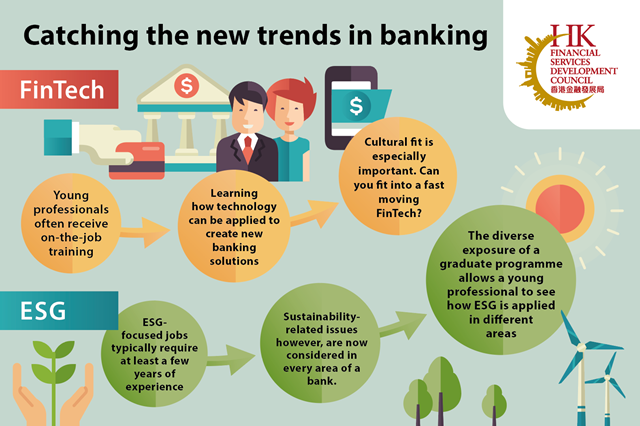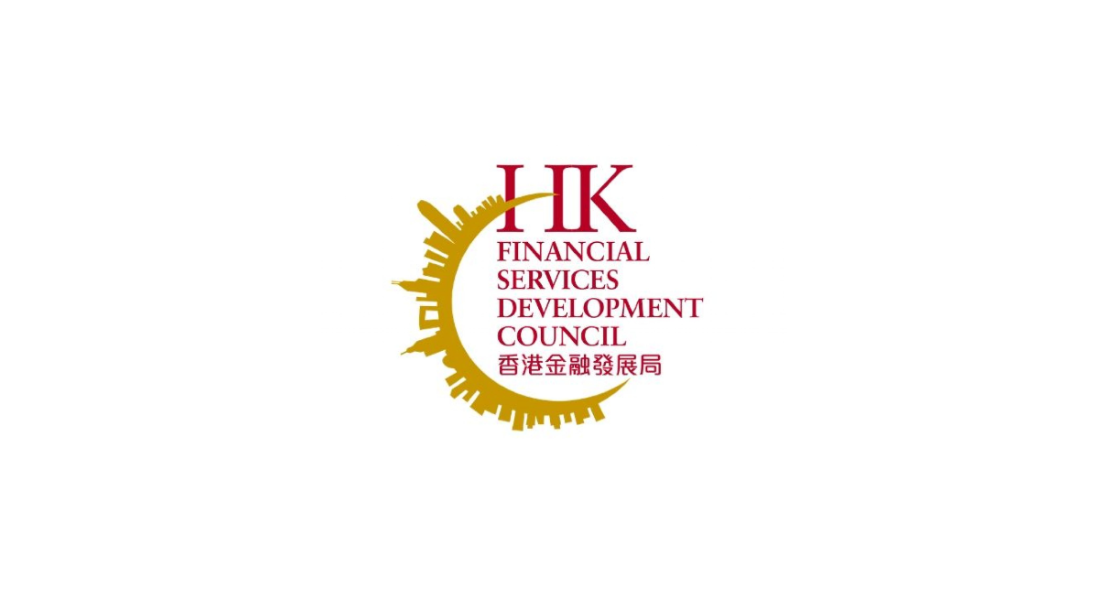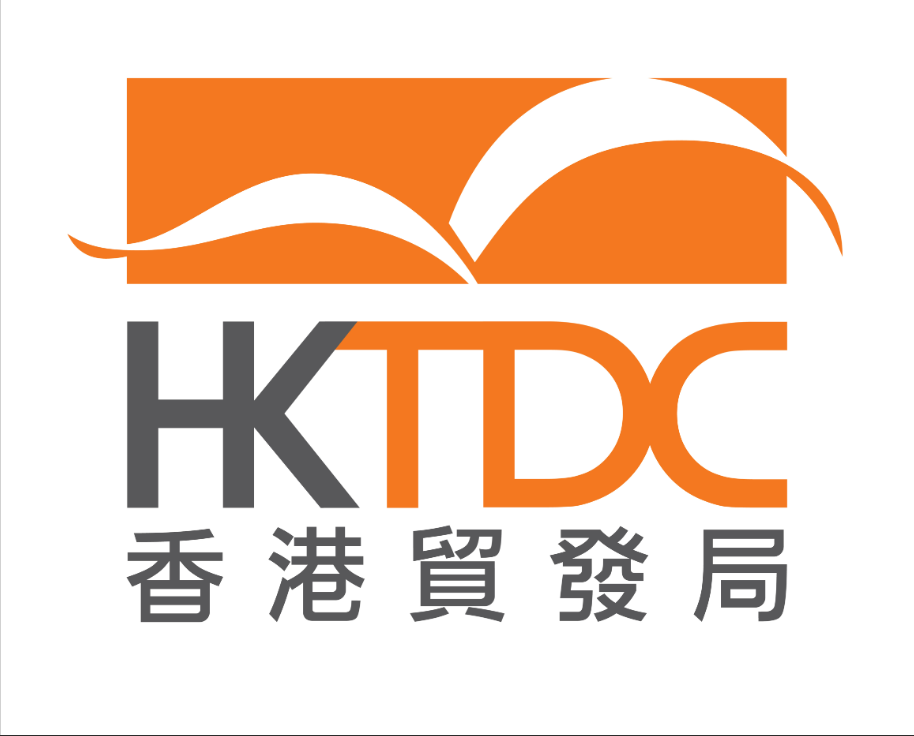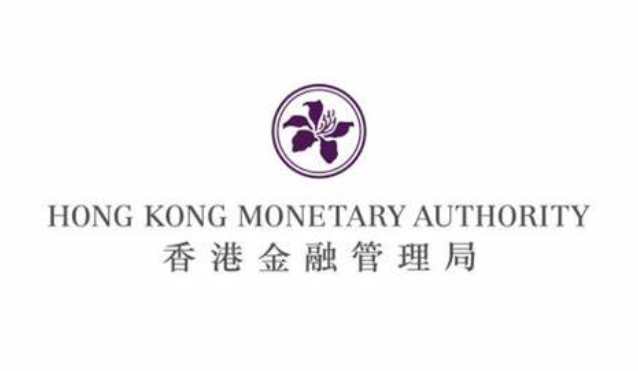Fintech and ESG in banking careers
The banking sector is undergoing fundamental change. On the one hand, technology is being integrated into processes so that banks can enjoy significant efficiency gains and provide new services. On the other hand, environmental, social and governance (ESG) considerations are becoming part of strategic decisions made by most senior management, all the way down to individual loan assessments.
Hong Kong is a pioneer in both of these areas. The city is home to over 800 FinTechs and has one of the world’s highest Fintech adoption rates among consumers1. Many of the world’s largest banks have large operations in Hong Kong, and they are also working hard to incorporate technology into their business.
When it comes to ESG, Hong Kong has already established itself as one of Asia’s leading markets for green bonds. The recent launch of Core Climate, a carbon market run by HKEX, is the latest sign that Hong Kong is on track to play an important role in the global transition to a more sustainable economic model.
FinTech and ESG both offer attractive career opportunities for students and recent graduates with ambitions in financial services. The challenge for younger jobseekers in these rapidly developing sectors is understanding how to find banking positions that include technology or sustainability.
These topics were the subject of the Financial Services Development Council’s (FSDC) most recent Practitioner Speakers Series: “Get ready for the transformation in the banking sector”, with two industry experts giving practical career advice.
Making a difference
One of the key attractions to working in new areas like FinTech and ESG is the opportunity to have a real impact on society. The FinTech revolution is not only improving services offered to existing banking customers, but also contributing to financial inclusion, as it enables people who have traditionally been unbanked to access more financial services.
In order to realise FinTech’s ambitions, professionals in the sector need to be open to new ideas and quick to adapt, said Kenny Cheng, Alternate Chief Executive, Deputy CFO, WeLab Bank.
“No matter what subject you studied at university, just keep an open mind while learning and observing what is changing in the market,” he said.
Sustainable finance plays an essential role in directing capital to accelerate to a net-zero economy, while promoting other goals – such as social justice. Success here requires transforming ESG concepts and policy ideas into real market actions, said Tracy Wong Harris, Managing Director, Head of Sustainable Finance Asia, Standard Chartered Bank.
“The whole ecosystem has to contribute to this process,” she said. “I believe that we are making a difference and helping society to have a long-term sustainable future for everyone.”

First step on the ladder
There is a growing acknowledgement that a university education does not typically give the kind of training that is specifically relevant for FinTech or ESG-related jobs.
For FinTechs, this means on-the-job training is especially important. Employees with financial knowledge learn how technology can be applied to create new banking solutions, while technology specialists learn the pain points that banking clients face, and how to address them. To get that all-important first job, young professionals need to demonstrate that they will fit into the fast-moving FinTech culture.
“In the hiring process, we have some elements to assess a candidate’s cultural fit,” said Mr. Cheng. “This is so we can find the right teammates, who all share the same common values.”
ESG-focused jobs can be harder to find for new graduates, as they tend to require a few years of experience. That said, issues related to sustainability are considered at every level of a bank’s operations – from issuing loans to designing financial products. Ms. Wong Harris said that a graduate programme is a good way to start out in ESG.
“A graduate programme gives you an advantage because you’re able to rotate across different departments and gain exposure to different financial products, each with a different focus on the ESG or sustainability focused space.”
Graduates with an interest in either Fintech or ESG can take advantage of several training schemes designed to prepare students for a greener, tech-driven financial sector.
The Greater Bay Area FinTech Talent Initiative is a programme organised by the Hong Kong Monetary Authority, with the participation of 20 major financial institutions, and the FSDC as the Strategic Partner. Launched in 2022, it aims to help students acquire the skills they need to work in FinTech, and recently more than 300 students were selected to undergo three weeks of training as part of the programme.
Another new scheme is the Pilot Green and Sustainable Finance Capacity Building Support Scheme – a three-year programme to encourage practitioners and prospective practitioners to train in green and sustainable finance. After completing an eligible course, students can apply for a fee subsidy that can be as much as 100% for full-time students, up to a maximum of HK$10,000.























































First, please LoginComment After ~